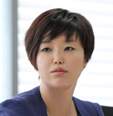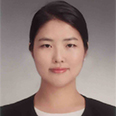Bold Reforms in the UAE and Saudi Arabia
Since the mid-2010s, the United Arab Emirates (UAE) and Saudi Arabia have implemented far-reaching economic, legal, and social changes. In an effort to break free of oil dependence and conservative Islam, they have promoted science and technology industries; imposed taxation; increased the proportion of youth and women in the cabinet and council; modernized the judicial system; reduced Islamic law’s influence over criminal, corporate, family, and civil law; and expanded laws protecting individual freedom. Moreover, among the six members of the Gulf Cooperation Council (GCC), the UAE and Saudi Arabia are the only ones to have implemented new special consumption taxes and value-added taxes.
Much of the attention and commentary on these reform efforts has focused on the deepening fiscal crisis in oil-producing countries that began in 2014. The UAE and Saudi Arabia had to fight the curse of rentier states in the era of low oil prices. The end of 2014 witnessed the beginning of a low oil price era due to slowing global economic growth and the shale energy revolution in the United States. Thus, it was difficult for the UAE and Saudi Arabia to maintain existing welfare policies such as free medical care, free education, low-cost housing, and subsidies that oil-producing countries had generously provided based on abundant finances. The two countries had to start to improve their national image in order to secure finance by attracting foreign investment. In order to win over the international community and investors, the two countries implemented legislative reforms with the priority of improving human rights and opening up society. In addition, welfare policies, including subsidies, were drastically reduced and taxation was implemented for the first time.
Changing Perceptions amongst Emirati and Saudi Youth: Post-traditional Values, Post-nationalism, and Post-sectarianism
Since 2018, the UAE and Saudi Arabia have improved their relative fiscal soundness, but they nevertheless continued their bold reform policies. In order to explain this continuity of reform efforts in both countries, it is necessary to look at the changing perceptions of Emirati and Saudi youth that started in the early 2010s. Comparing opinion polls from 2003 and 2010, before the 2011 ‘Arab Spring’ revolutions, with subsequent polls in 2011 and 2013/14 shows that Emirati and Saudi youth have increasingly valued individualism, freedom of expression, and democracy over traditional values such as religion, family, kindship, and ethnicity. The results of 2017/2018 and 2019 surveys also showed that they preferred a pragmatic international outlook beyond nationalism and sectarianism. Changes in the perceptions of young people in the UAE and Saudi Arabia can be found in analysis by ‘Arab Youth Survey,’ ‘Saudi Value Survey,’ ‘Arab Opinion Index,’ and ‘Zogby Research Service.’
As a matter of fact, the ruling legitimacy of the Emirati and Saudi royal families, which has been maintained through large-scale welfare policies and paternalistic slogans, was shaken in the face of an unprecedented financial crisis. According to various opinion polls around this time, more than half of the total population (young people under the age of 35 accounting for 58% in UAE and 69% in Saudi Arabia) are increasingly placing importance on freedom of expression, pragmatism, and democratic values. Unlike their parents, whose generation lived a nomadic life in the desert prior to oil development, these young people have enjoyed traveling the world from a young age and using new IT technologies all their lives, and witnessed the 2011 Arab Spring unfold around them. Since the early 2010s, younger generations in the UAE and Saudi Arabia have shown a shift in perceptions toward post-traditional values, post-nationalism, and post-sectarianism, with religious, family, community, and ethnic values becoming less important to them.
The governments of the UAE and Saudi Arabia observed the outbursts of civil demands during the Arab Spring in several neighboring countries and the subsequent collapse of long-standing dictatorships in Tunisia, Egypt, Syria, Libya, and Yemen. The two governments, recognizing the threat to their own regime survival, tried to show a gesture of responsiveness by reacting to youth public opinion. Of course, within a few years of the Arab Spring, Egypt returned to military authoritarianism, and civil wars followed in Syria, Libya, and Yemen. With the regression of authoritarianism and prolonged civil wars in neighboring countries, the stability of the oil-rich monarchies seemed to achieve legitimate resilience.
However, according to the results of public opinion polls in the UAE and Saudi Arabia, the trend toward the post-traditional values of youth perceptions has been strengthened. Short-term responses implemented by the two countries immediately after the Arab Spring did not change the minds of young people. Furthermore, in the era of low oil prices, the political mechanism of ‘no representation without tax payment’ was shaken. In order to stabilize the regime, the two governments tried to respond more sensitively to citizens’ criticisms and youth public opinion and to show a gesture of embracing the changing perceptions of young people in their reform policies. According to polling institutions, after the Arab Spring, oil-producing monarchies such as the UAE and Saudi Arabia have been less uncomfortable with, and refrained from intervening in, the results of sensitive questions to their citizens. Also, these polling organizations evaluated that the degree of sampling bias and error of respondents in Arab regions was similar to that of other regions, and that the response rates of GCC member countries were high compared to other countries and regions.
The leaders of both countries have repeatedly emphasized that the young generation is the future of the country and that they will promote support and reform for them in their official speeches. Ultimately, the UAE and Saudi governments have pursued reform policies tailored to the changing perceptions and values of their youth and won their support. This is the reason for the evaluation that these countries’ bold reform policies are the only indirect success brought about by the Arab Spring.
However, it is unlikely that the UAE and Saudi Arabia will develop into a democratic system in the near future, despite the radical reforms. The ruling elites of the two countries have implemented the reforms tailored to the demands of their citizens in order to limit the changes within the system and to consolidate the regime’s resilience.

 Facebook
Facebook Twitter
Twitter
